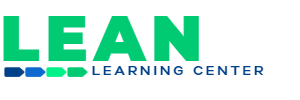This is part two of our series about a collaboration between Lean Learning Center, Oakland University, and the Clintondale Community School District offering students in two elective classes at Clintondale High School a six-week (30 lessons) course on Lean methods that included an extensive project-based learning simulation. If you’d like to catch up on Part One – click here.
Now that we’ve reviewed 21st century high school curriculum, let’s review what Lean is:

Lean Fundamentals is a series of simulation-based/problem-based lessons for collaborative/team learning promoting knowledge, dispositions and applications of the widely used Lean body of knowledge and practice. Lean or the Lean performance management system encompasses a philosophy founded on five principles and a methodology of many (45+) tools. Lean is designed to promote logical analysis of an existing situation’s root problems through collaborative problem solving to eliminate root causes. In short, Lean is a way to improve paradigms through critical thinking and reflection (habits of mind and heart) and to improve processes through piloting of ideas and solutions (habits of hand). Lean relies on everyone to respect individual and collective potential (respect for people) and to use continuous improvement as a committed way to create value (the pursuit of perfection). Respecting people and pursuing perfection are principled behaviors that high school students are capable of engaging in as a learning cohort. Respecting people and pursuing perfection is approached as a team effort in Lean Fundamentals.
Because Lean is a well-established domain, there are assurances for learning outcomes for students within Lean Fundamentals. This is similar to what Lean practitioners experience in both personal and professional spheres. These student learning outcomes include:
- For students entering careers, a Lean credential that is widely recognized in the workplace. Many job postings include the need for knowledge of Lean and experience with Lean.
- For students entering college or careers, obtaining college and career readiness outcomes. Lean can be broadly integrated or spiraled into any disciplinary, trans-disciplinary or interdisciplinary setting. For example, Lean can be used as a stand-alone course or combined with core academic, elective, specialized or career and technical course. Since Lean is a rational method of sorting out complexity, solving problems and testing solutions, students will be able to use Lean in many types of situations.
- For students entering college or careers, experience with a team-based discovery/coaching process that fosters deeper learning competencies. This includes experiences: a) to analyze and think through critical examination, systemic analysis and creative brainstorming; b) to communicate clearly, check for effectiveness and improve paradigms; and 3) to learn in a continuous improvement mode, as a collaborative engagement with reflection and correction cycles.
- For students entering college or careers, exposure to the reality of lifelong learning as it is translated through the Plan-Do-Check-Adjust continuous improvement cycle as a team and as an individual learner. The process of sense-making is demonstrated through the Lean performance management system and participants experience how difficult it is to reach a final perfect solution. Appreciation for both a quality result and quality process is attainable through Lean Fundamentals. Learning how to learn and developing an academic mindset are attributes of a Lean engagement.
- For students entering college or careers, appreciation for the character development aspects of Lean Fundamentals as students experience team relational perspectives. Respect for people is foundational in the Lean Fundamentals program whereby team member strengths are recognized, personal accountability to team outcomes is emphasized, and team effort is required to obtain a solution.
Stay Tuned for More from Lean Learning Center
Lean curriculum has been used in higher education and the workplace for several decades. The potential for Lean Fundamentals in the high school are explained next week in Part Three of our series.
Lean Learning Center
The Lean Learning Center was founded in 2001 to address the gaps and barriers that are holding back companies from successful and sustainable lean transformation. In addition to the advanced curriculum, the Center has developed a learning environment designed specifically for adult learning utilizing techniques that include discovery simulations, case studies, personal planning, and reflection – ultimately engaging people at a deep and personal level. We bring our unique lean understanding in creative ways to executives, managers, supervisors, change agents and front-line employees.
